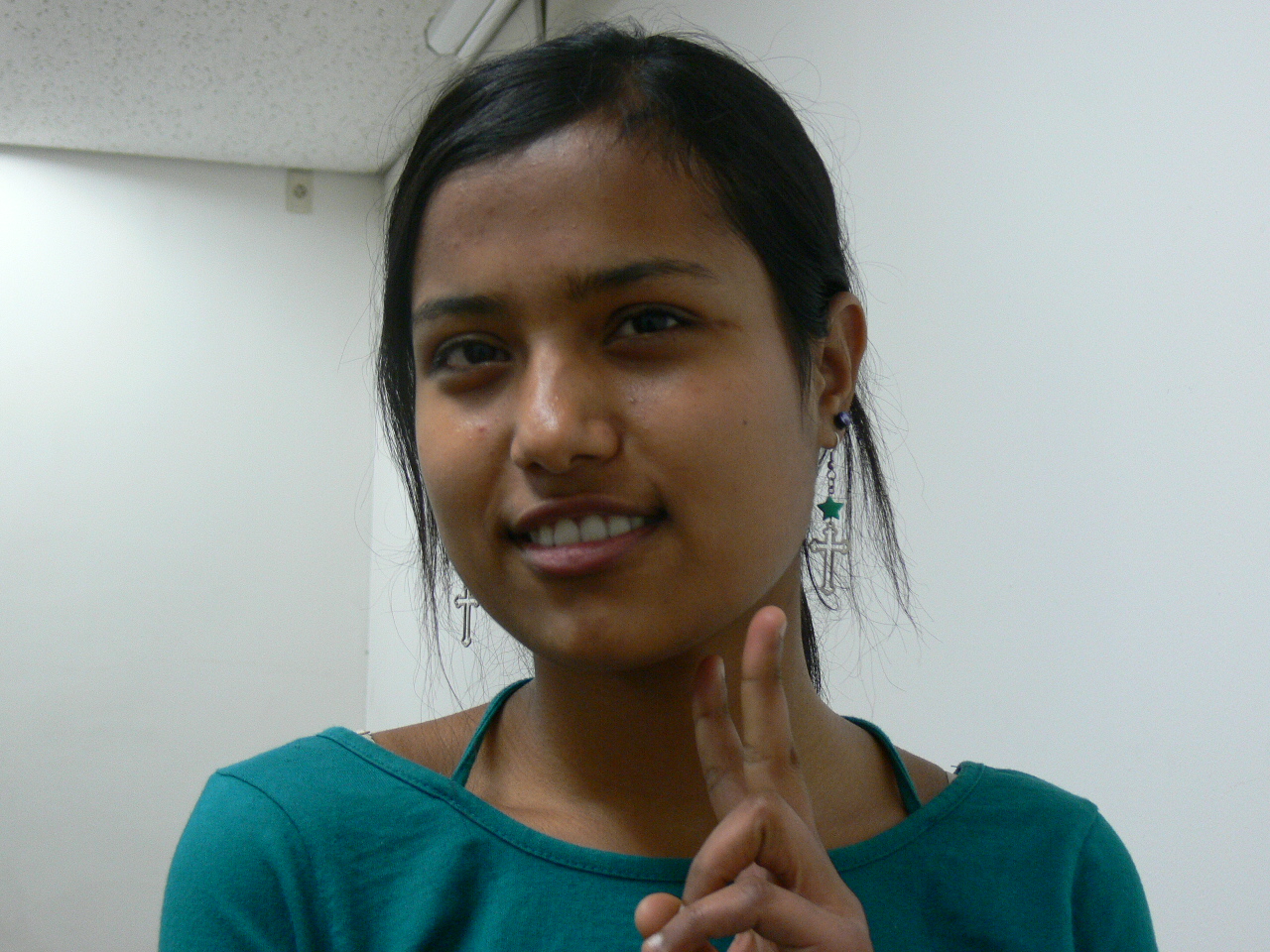
Honey
Nepal has not been familiar with Koreans, and most people scarcely know anything about the country. With the recent events surrounding Tibetan refugees in Nepal, Nepal has started drawing public attention. So the Sookmyung Times met Honey (20), a Nepalese student at Lingua Express in Sookmyung Women’s University, to give you more information about Nepal.
A Special Season, Monsoon
Nepal typically has two seasons per year. There is a dry season from October to May and there is the wet season, the monsoon season, from June to September. I think September – November, the start of the dry season, is in many ways the best time of the year in Nepal. Because the countryside is green and lush when the monsoons have just ended, Nepal is at its most beautiful, and during this season there are plenty of colorful festivals to enjoy, so, I would like to recommend you to travel to Nepal in that season. That will be an indubitably exciting experience for you. Due to the wet monsoon season, the Nepalese have constructed their houses differently to Korean’s. For example, Nepalese people have a kind of stable under the house, whereas Korean’s are beside the house. Actually, Nepalese houses begin in the air because we don’t need the first floor of the house due to the high percentage of humidity.
Himalayan Region, the Highest Area in the World
The Nepalese Himalayan area is bound on the north by the Tibetan Autonomous Region. The altitude of this region ranges between 4,877m – 8,848m. It includes eight of the fourteen highest summits in the world. Sparse vegetation is found up to 4,500m, thus some of the Nepal’s most beautiful animal and plant-life are also found here. Although rare, the snow leopard and Danphe bird are much talked-about sights among visitors. The people in this region produce and sell cheese besides working as mountain-guides and porters. I think if you could experience such people here, you would be very interested in the life of the Nepalese. I guess such landscapes and people could be very exotic for you.
A Caste System, The Whole Of Nepal
The caste system categorized Hindus and other ethnic groups into a social hierarchy. It is within bounds to say that the upper caste have decided on everything in Nepalese society. The variety of castes is very diversel; for example, there are MAGARS, NEWARS and so on. I belong to the NEWAR caste, so let me introduce them. The NEWARS are of Mongolian origin and are the dominant ethnic group of the Kathmandu valley that is surrounded by the central areas of Nepal. Despite our geographical origins, the majority of the population are now Hindus, having adopted Hindu customs, although communicates of Newari Buddhism do remain. We represent perhaps the greatest synchronicity of the Tibetan and Indian traditions of any of Nepal’s ethnic groups and also incorporate aspects of animism. We use the Newari language which has been influenced by both the Tibeto-Burmese and Indo-European families. Actually each cast uses a different language as well as the standard language of Nepal. Traditionally leading traders, Newars once organized trains of basket-carrying porters over the trans-Himalayan passes to Tibet. Most of us are also remarkable craftsmen and developed the unique building style that successfully blends influences from India, China and Tibet with carved wood and pagoda-like temple roofs. Like this, the caste system has elevated the diversity of Nepal, whereas in the past it divided the Nepalese and was used as a means of distinction. Yet, distinction by caste has disappeared as time has gone by, and now is not serious.
Undeveloped Beauty
Nepal is a land of undeveloped beauty. Natural landscapes and diverse cultures as seen in national festivals will make you excited and help you experience a truly exotic mood. I hope you will try traveling to Nepal. Despite many undeveloped areas, you can definitely feel the best. I am going to leave for Nepal soon. Until now, my experiences in Korea have been sometimes very different and sometimes very similar for me. Although there are some difficulties like a cultural barrier for me staying in Korea, it has generally been wonderful living here, so I feel something wanting before I leave. As Korea has been good for me, I hope Nepal will be great for you, Koreans!


